MercoPress. South Atlantic News Agency
Uruguay
-
Friday, November 25th 2011 - 06:50 UTC
“It’s very tough living inside Mercosur”, admits Uruguayan head of the Industries chamber
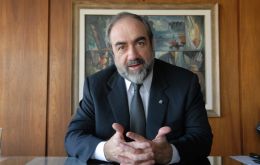
Uruguay’s president of the Chamber of Industries, (CIU) Washington Burghi said that relations with Mercosur partners are becoming ever so complicated and if these problems are not addressed “we will be in serious trouble because the whole world is going through tough situations”.
-
Friday, November 25th 2011 - 01:05 UTC
Argentina officially declares “Uruguay is no tax haven” and disagrees with Sarkozy

The Argentine ambassador in Uruguay, Dante Dovena said this week that French president Nicholas Sarkozy statement at the G20 summit, in reference to Uruguay (as a tax haven) is not shared by his government.
-
Wednesday, November 23rd 2011 - 20:07 UTC
Brazil’s Marfrig deeper in the red but beef division manages turnaround
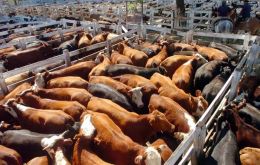
A slump the Brazilian currency Real landed Marfrig deeper in the red despite an improved operating result, lifted by takeovers and better tailoring its beef operations to a shortage of cattle.
-
Tuesday, November 22nd 2011 - 23:03 UTC
Uruguay hopeful it can reach a tax-data exchange agreement with Argentina

“Negotiations are on the right track” and should be concluded in coming months, said Uruguayan sources adding that one of the current difficulties is what will happen with the Argentine negotiating team, following December 10 when re-elected President Cristina Fernandez takes office for her second consecutive four year mandate.
-
Tuesday, November 22nd 2011 - 22:13 UTC
Astori forecasts record tourist season in Uruguay but cautions about the US dollar
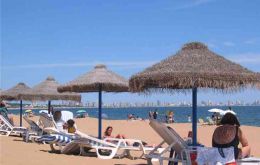
Uruguay’s Vice president Danilo Astori downplayed the effects of Argentina’s restrictive measures for the purchase of dollars and forecasted an excellent summer season with hundreds of thousands of Argentines tourists visiting Uruguay.
-
Tuesday, November 22nd 2011 - 22:07 UTC
Uruguay’s central bank confident about commodities’ price prospects
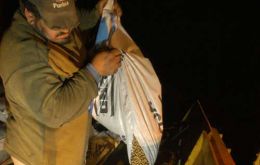
Uruguay’s Central bank sees “few probabilities” of a strong deceleration in emerging economies or a ‘significant’ fall in commodities prices even when lately there has been a drop in the value of grains although still above their historic average.
-
Tuesday, November 22nd 2011 - 22:00 UTC
Brazil makes official support for Uruguay in ‘fiscal haven’ controversy with G20
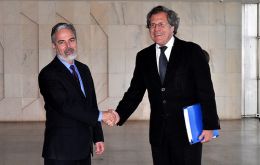
Brazil’s Foreign Affairs minister Antonio Patriota said Brasilia supports Uruguay in its controversy with France following President Nicholas Sarkozy claim, at the recent G20 summit, that Uruguay was a ‘fiscal haven’.
-
Tuesday, November 22nd 2011 - 16:03 UTC
Air traffic in Argentina and Uruguay delayed because of volcanic ash
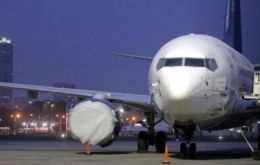
Commercial flights in Argentina, Uruguay and Paraguay were cancelled or reprogrammed Tuesday morning because of disruptions caused by the hovering volcanic ash being blown from the Chilean Puyehue which erupted five months ago.
-
Tuesday, November 22nd 2011 - 01:46 UTC
World Bank loan to help Uruguayan farmers address climate change consequences

The World Bank approved last week a loan for 49 million dollars to support Uruguayan farmers in adopting environmentally sustainable practices to improve the resilience of their production systems in response to the effects of climate variability.
-
Monday, November 21st 2011 - 23:55 UTC
UK praises Overseas Territories for sponsoring measures to protect seabirds

Foreign Office Minister Henry Bellingham has welcomed the UK Overseas Territories important role in agreeing new measures to protect seabirds.
